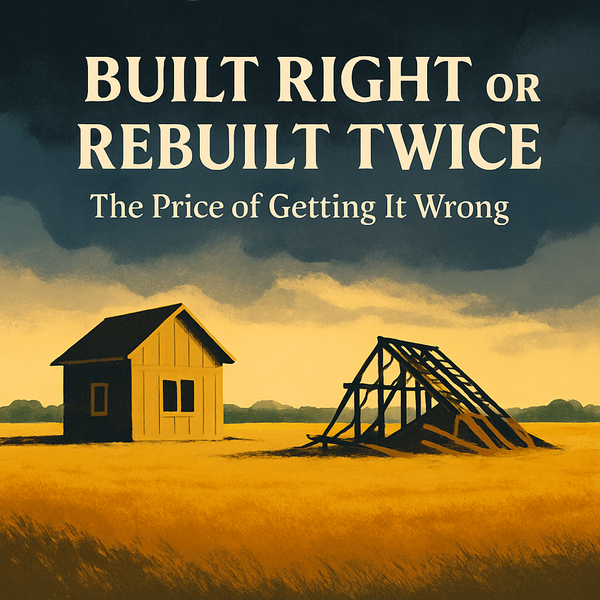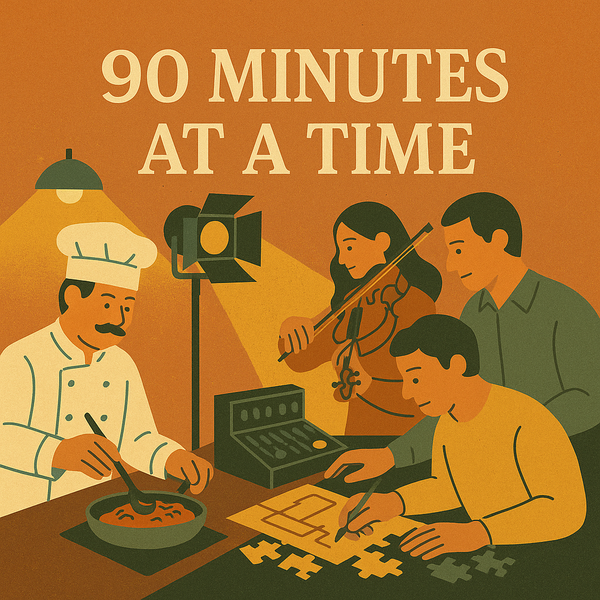The Forgotten Path to Riches: Why Ancient Principles Still Work

What Business Schools Won’t Tell You
In an era of growth hacking, viral marketing, and disruption at all costs, two unlikely books hold the real secrets to successful business: Rabbi Daniel Lapin's "Thou Shall Prosper" and Og Mandino's "The Greatest Salesman in the World." Written decades apart, both authors arrive at the same counterintuitive conclusion: the fastest path to riches runs through serving others with genuine integrity.
This is not the message most business schools teach. Modern commerce often treats relationships as transactions and customers as targets to be conquered. Yet these two works, drawing from millennia of proven wisdom, suggest we have forgotten something fundamental about how wealth actually works.
The Great Reversal
Mandino's ancient scrolls contain a radical premise: "I will greet this day with love in my heart." For most salespeople, this sounds like fortune cookie wisdom. But Mandino understood what Jewish merchants had practiced for centuries: that love, not manipulation, closes deals that stay closed.
Lapin echoes this principle through Jewish commercial tradition. When your business depends entirely on your reputation, every interaction becomes an investment. Every honest transaction builds the trust that makes future transactions effortless. The merchant who loves his customers does not just make a sale; he creates a relationship that generates sales for decades.
This represents a complete reversal of conventional sales thinking. Instead of overcoming objections, you eliminate them by genuinely caring about outcomes. Instead of closing techniques, you open relationships that close themselves.
Character as Competitive Advantage
Both authors recognize that character is not just morally superior but also strategically superior. Mandino's discipline of emotional mastery means you never make desperate decisions that sacrifice long term credibility for short term gains. Lapin's emphasis on integrity creates what economists call "reduced transaction costs." When people trust you completely, they spend less time verifying, comparing, and protecting themselves.
Consider Mandino's principle: "Today I will master my emotions." In business, this translates to maintaining your standards when competitors panic. While others cut corners during tough times, the principled business signals unshakeable reliability. Customers notice. Partners notice. The business built on character compounds its advantages while the business built on expedience eventually faces a reckoning.
A great example of this principle in action would be how Southwest Airlines built customer loyalty through employee happiness and service consistency, while Spirit Airlines recently filed for bankruptcy after years of competing purely on price while nickel and diming customers at every turn.
The Persistence Paradox
Perhaps the most forgotten principle is the relationship between persistence and service. Mandino's scrolls teach relentless persistence, but not the kind that wears down prospects. Rather, persistence in serving others' needs until you find the perfect solution. This is not about making more calls but about caring more deeply. As Bob Burg and John David Mann teach in The Go-Giver, the most successful people focus on giving value rather than getting results.
Jewish wisdom adds crucial context: persistence works because you are building something larger than individual transactions. Each interaction contributes to a reputation that opens doors you never knew existed. The salesperson who persists in serving others does not just outlast the competition but makes the competition irrelevant.
The Daily Disciplines of Wealth
What makes these principles practical rather than theoretical are the daily habits both authors prescribe. Mandino's scrolls provide a framework for maintaining character under pressure. Lapin's teachings show how integrity creates systematic advantages that compound over time.
The forgotten path requires daily choices: choosing transparency over information advantage, choosing customer success over maximum extraction, choosing long term relationships over short term profits. These choices feel costly in the moment but create exponential returns over time.
Rediscovering What Works
In our age of algorithmic marketing and data driven everything, we have somehow convinced ourselves that human nature has changed. But the principles that built fortunes for Jewish merchants and transformed Mandino's fictional salesman work for the same reason they always have: they align everyone's interests.
When serving others becomes your competitive advantage, you have discovered the real secret to lasting wealth. This is not naive idealism but sophisticated strategy that happens to feel good.
The forgotten path to riches was never really forgotten. It has been hiding in plain sight, waiting for business leaders wise enough to choose character over cleverness, service over self interest, and ancient wisdom over modern gimmicks.
Want to explore these principles further?
Read "Thou Shall Prosper" by Rabbi Daniel Lapin and "The Greatest Salesman in the World" by Og Mandino and The Go-Giver by Bob Burg & John David Mann. These books are available wherever books are sold and offer practical frameworks for building character-driven businesses that create lasting wealth.




